To the people of Arnhem Land, shellfish and other sea creatures nourish a link to country and culture.

WHEN THE YOLNGU of north-eastern Arnhem Land look to the sea, they know the season from the direction and feel of the wind. One thing the wind communicates, they say, is when certain maypal are plump and ready to be gathered.
The term maypal covers many marine and some terrestrial creatures that have sustained generations of Yolngu for millennia. In one sense it means shellfish. But maypal include foods non-Indigenous Australians might not consider to be in that category, such as land snails, marine worms and insect larvae, including witchetty grubs. Maypal are fundamental to Yolngu culture. They are tasty and easy to harvest; just go down to the beach or among the mangroves. And they sustain coastal people not only physically, but also spiritually and emotionally.
Huge middens of shells along Australia’s northern coastline attest to the popularity of maypal: in some areas middens more than 30m high date back many thousands of years.
“In the north of Australia, we have an incredibly varied, rich and complex coastline, with a large number of ecological zones,” says Dr Bentley James, a Northern Territory anthropologist and linguist who lived in Arnhem Land for many years. “There are more than 1500km of coastline on the mainland and another 1750km on the islands, not to mention all the reefs and sand bars.”
This story is from the {{IssueName}} edition of {{MagazineName}}.
Start your 7-day Magzter GOLD free trial to access thousands of curated premium stories, and 9,000+ magazines and newspapers.
Already a subscriber ? Sign In
This story is from the {{IssueName}} edition of {{MagazineName}}.
Start your 7-day Magzter GOLD free trial to access thousands of curated premium stories, and 9,000+ magazines and newspapers.
Already a subscriber? Sign In
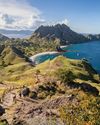
SULAWESI SENSATIONS
There are worlds within worlds and marvels untold waiting to be experienced on Indonesia's remote islands.
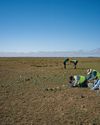
SEARCHING FOR AUSSIE DINOSAURS
Our understanding of where to find ancient life in Australia has been turned on its head by a new appreciation of the country's geology. Now the world is looking to our vast outback as the latest hotspot to locate fossils.
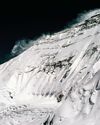
THE HARDEST NIGHT
The first Australian ascent of Mt Everest in 1984 is one of the great feats of mountaineering. Climbed by a small team semi-alpine style, with no bottled oxygen, via the Great (Norton) Couloir, it remains unrepeated 40 years later.
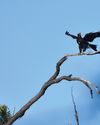
WEDGE-TAILED WONDER
The chance discovery of an eagle nest leads to an extended vigil observing normally hidden behaviours of one of nature's supreme winged marvels.
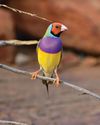
BURDENED BY BEAUTY
Northern Australia's Gouldian finch survives in huge numbers in cages around the world, but its wild population continues to struggle.
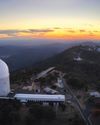
A TELESCOPE FOR A GOLDEN AGE
After a stellar 50 years as one of the country's major scientific assets, the AAT continues to play a major role in keeping Australian astronomy on the world stage.
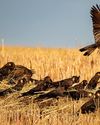
COCKY WHISPERING AT COOMALLO CREEK
This patch of remnant bush on the edge of the West Australian wheatbelt is a place loved by one of Australia's rarest bird species and the man who has studied the site for more than 50 years.

A PIONEERING PAIR
Louisa Atkinson and her mother, Charlotte, were among Australia's earliest authors, and pioneers in women's rights.

THE LONGEST WALK
Lucy Barnard is walking from Argentina to Alaska -the length of the Americas - on an extraordinary journey of endurance and adventure.
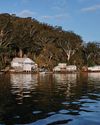
SECLUDED, BUT NOT ALONE
In an era of heightened social isolation, where many of us lead lonely lives, Dangar Island offers the chance to be part of a supportive, connected community.